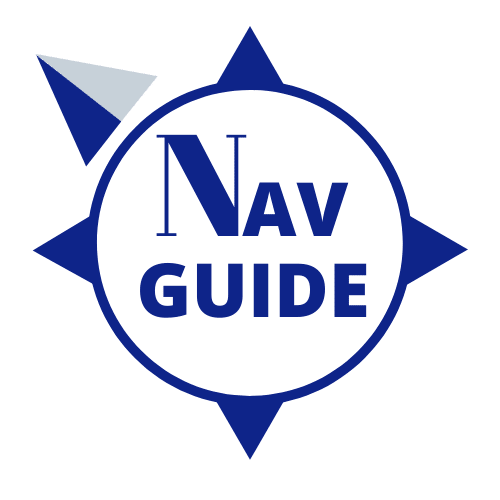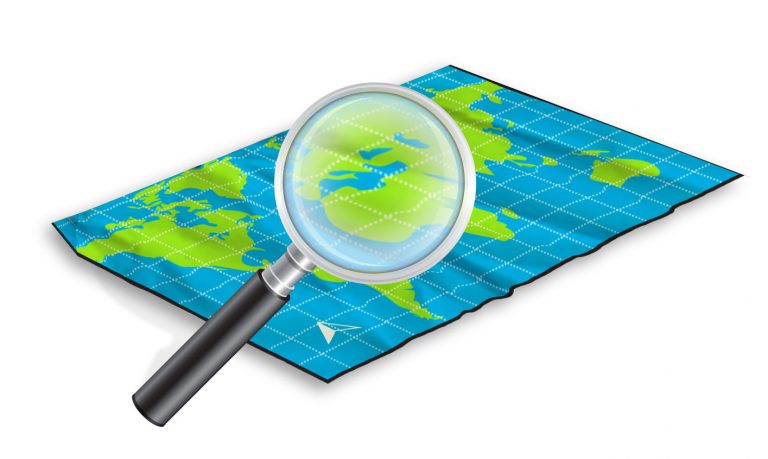
Navguide Solutions LLP
The Navguide Blogs

Want to write for us? Just let us know...
Menu
VIQ 7, 2018: When to challenge an observation

SIRE inspectors have taught me many things. But come on, they cannot be right every time!
I have always believed in learning from inspectors to the benefit of the vessel; to graciously accept the observations which will go in improving the vessel overall. But at the same time, it is in the same spirit that one must also confront those observations which are there just to fill in gaps, those which are beyond any VIQ requirements, on the whimsies of the inspector. While “improvement suggestions” are most welcome, I would not accept them as a VIQ observation!
This blog attempts to highlight a few of the common ones. An understanding of the latest VIQ will throw some light on what to challenge.

Ten things you must know about VIQ 7!
Here is a list of ten things which you must know
- Leaks are allowed:
Ref VIQ Section 8.9: A small quantity of cargo leakage rate of up to about 0.5 litres/day (and higher with light cargoes) during pump operation is normal. Acceptable leakage rate depends on the type of cargo and possible consequences in case of leakage can cause blockages to the cofferdam. Also, small hydraulic leakage rate into the cofferdam up to about 10 millilitres/ hr (0.25 litres/day) from the mechanical oil seal or lip seal during a pump operation is normal.
- Earth fault:
Ref VIQ Section 10.38: Good practice suggests that a near to infinity as possible, but not less than 5 megohms, should be aimed for on the Insulation Monitoring Device (IMD). This should be achievable on a 440-volt system, but on a 220-volt system, up to 2 megohms is acceptable due to a large number of parallel circuits.
- Rest hours: Criteria for Rest hour violations have changed!
Ref VIQ Section 3.2: Rest hour violations will result in an observation if:
- a. Meaning of 24 hours is misunderstood by officers and not considered cyclic;
- b. If non-conformances are not calculated;
- c. If Shore managers are not informed of RH hours at least monthly;
- d. If more than 3 days of violations not addressed by the manager.
- Conduct of Inspectors:
Ref VIQ Intro Section 4 / 1.11:
- Inspectors are obligated to wear their PPE as per Ship/Terminal requirements;
- They must switch off any Non IS equipment before going on deck, including cameras, Phones, Smart Watches.
- They must discuss all observations before leaving the vessel (4.1.1.5) with Master even if they do not prepare a final report. This happens with Exxon Mobil inspections, where inspectors are not obligated to prepare a report before leaving the vessel.
- Inspection guide-time is 8-10 hours, of which max 3 hours for documentation.
- Inspector should not remain on the vessel after the closeout meeting.
- IG failure on tankers:
Ref VIQ Section 8.24: ISGOTT or IMO guidelines do not say that cargo discharge operations must be stopped immediately if the IG System fails.
In case of Crude Oil tankers; the system must be repaired before the tanks become negative in their pressures or external IG provided. In product tankers, there is a provision to start without IG under certain conditions given in VIQ 8.24.
However, the company guidelines may be more stringent and the vessel will be obligated to follow them.
- ECDIS Type specific Training;
Ref VIQ Section 3.2: There is a bit of ambiguity on this.
First of all, generic ECDIS training is still mandatory for all bridge watchkeepers by all standards. No doubts there! This training must be shore based and must involve a discussion of all common functionalities.
The ambiguity remains as to the requirement of Type-specific training. It is not mandatory anymore to have a specific type of specific training as per IMO as per Circular STCW.7/Circ.24/Rev.1. It clearly states that – “No requirement exists for the approved training on ECDIS equipment to be type-specific.” However, the knowledge and proficiency of seafarers must be optimum for its use and may be tested by third parties.
VIQ however clearly states that Type specific training will be required. It may not be shore-based however. In fact, it can be one or more of the following:
- Type-specific Shore based
- CBTs
- Internet-based
- Onboard training by the appropriately trained crew (what does that mean really?)
- Manufacturer’s Training mode on the specific ECDIS
- Company manuals.
It specifies: “Trickle down training” (i.e. just learning on the job) is not acceptable. The operator’s SMS must specify which type of training is required before the Duty officer assumes a navigational watch.
- Celestial Observations:
Here is an interesting change in VIQ 7, 2018
The old version (VIQ 2014) stated under section 4.26
Good navigational practice demands that the officer of the watch: Uses visual navigation aids to support electronic position-fixing methods, i.e. landmarks in coastal areas and celestial navigation in open waters
However, the new VIQ makes no reference to any celestial positions or the use of a sextant. Don’t believe me? Try searching the VIQ 7 file with relevant keywords and you’ll see.
In fact, the only section similar to above is the Section 4.17, which states:
Frequent checks should be made of the ECDIS position fixing system (normally GPS) by the use of other means. Such checks should include: – Parallel indexing and use of clearing bearings; – Use of radar to check the accuracy of the charted position by comparing the location of the radar target against the charted symbol, including the use of radar overlay if fitted. – Visual cross bearings;
The Sextant and celestial observations is not a VIQ requirement under any section. It, however, may still be required by the company SMS.
The question remains, that if not celestial, how else do you compare positions in the open sea? This is debatable, but if two independent GPS units with individual antennae, a comparison between the two could be more reliable than a celestial observation. Several inspectors I have met are willing to agree with me on this one.
- VHF Radios:
Ref VIQ Section 4.27: There is no need for the GMDSS VHF two way walkie-talkies to be Ex-rated or intrinsically safe type. However, if they are used in gas-hazardous areas, they must be certified.
Where, you ask? Well, there might be such situations coming up. For example, if you have passed on a VHF to another vessel during an STS operation, or if you are using them for the anti-piracy purpose.
- Crew Matrix:
Ref VIQ Section 3.5: Observations can occur if the Officer’s/Crew Matrix is not properly updated and the inspector can check the details against the actual seatime. But if crew changes have taken place less than 7 days before the inspection the Matrix may not be updated and this cannot be an observation. There is a recent section to include “Time as a watchkeeping officer” for all ranks. If this field is not totally complete observation cannot be made. It is an optional field.
- Magnetic Compass Deviation:
Ref VIQ Section 4.9: VIQ clearly states that compass error can be excessive during an inspection due to the presence of metal structures, hence such observations cannot be given. Excessive deviation on either the magnetic compass on the bridge or that in the lifeboats must not be considered in port, in presence of chickens, shore cranes or other structures.
I can tell you from experience that there can be a great variance in deviation values in the presence of such soft iron structures which act as temporary magnets pulling your compass needle in varied directions!
The Strong but polite objection
I said “Confront” before.
“Confront” is a strong word, but I am from a non- violent country. As most of us know, (and if you have been reading it this far, you are no spring chicken either) when I say that, I do not mean “fight”. Just because you know something need not make you arrogant.
Married men must know this! – There is a polite way to object.
You can counter a certain observation at various stages.
Without a doubt, the most effective place and time are during a closing meeting on board while discussing the final list of observations. The inspector has consolidated and decided on the final list. A strong point to counter the observation politely put at this time often makes all the difference. With the right attitude, it has over 80% success rate.
If however, your conversational skills did not do the trick or the inspector was not interested to listen to you, all is not lost yet. Another place, while not so effective, would be after the inspection results are submitted to the Oil major company. The technical managers can put it across and your professional inputs as a seafarer can greatly help there.
After all, it’s all about numbers and KPIs nowadays, isn’t it? Well, this is the world we live in.
Why not learn to live gracefully?
Contact us
Leave us a note and we will get back to you for a free consultation
- +91-99846 85150 / +91-94745 21345
- captain@thenavigatorsguide.com
- WhatsApp: +91-98300 49159 / +91- 99846 85150
- https://www.linkedin.com/in/debashis-basu
